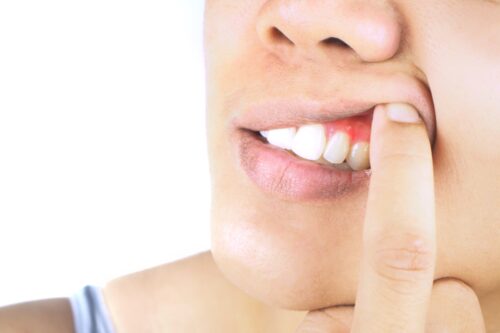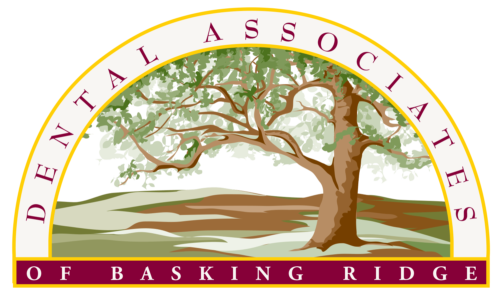
It is imperative to maintain good oral health habits to prevent serious dental problems such as gum disease. Some forms of gum disease are more difficult to treat than others and could lead to significant oral issues if they are not detected early. It is important to understand that there are three different types of gum disease: gingivitis, periodontitis, and advanced periodontitis. Gingivitis is the least severe form of gum disease that is easily reversible. If this type of gum disease is caught early enough it can prevent periodontitis and advanced periodontitis. If you notice that your gums seem to be inflamed, swollen, or a dusky red color, it is time to schedule an appointment with one of our skilled gum disease treatments/dentists located in Basking Ridge & Morristown, NJ who can help you maintain your overall health and prevent gum disease.
What is gingivitis?
Gingivitis is a mild form of gum disease that is easily treatable if detected early. Generally, gingivitis is caused by poor oral hygiene. When an individual does not regularly brush their teeth, floss, or get their teeth professionally cleaned by a dentist they are at risk of gingivitis. Gingivitis happens when plaque and bacteria build up on your teeth which can lead to an infection. When plaque forms on your teeth, if it is not cleaned it will turn into tartar. If plaque and tartar form on your teeth and are not removed, this type of bacteria build-up can cause serious inflammation surrounding your gum tissues. In addition, gingivitis causes irritation, redness, and swelling. Essentially, gingivitis affects the gingiva which is part of your gum that surrounds the base of your teeth.
How to treat it?
As mentioned above, this less severe form of gum disease can be treated and cured fairly easily if detected early enough. The best treatment for gingivitis is having extensive professional teeth cleaning by an experienced and qualified dentist. If you can practice good oral hygiene methods at home, you can easily reverse this type of gum disease. However, for this method to be effective, you must regularly brush your teeth twice a day. In addition, floss your teeth once a day, use fluoride mouthwash, and avoid consuming sugary foods and beverages. Furthermore, you should regularly visit your general dentist to have the plaque removed from your teeth to prevent gum disease.
What are the symptoms?
Several signs and symptoms are indicative of gingivitis. Healthy gums are a pale pink shade that firmly surrounds your teeth. Unhealthy gums may bleed, appear dark red, or seem to be receding. The following are common symptoms that indicate you may have gingivitis:
- Swollen gums
- Tender gums
- Receding gums
- Persistent bad breath (halitosis)
- Painful chewing
- Loose teeth
- Sensitive teeth
- Gums that bleed frequently when you brush or floss
If you detect any signs or symptoms that are indicative of gingivitis, schedule an appointment with one of our trusted and skilled dentists. It is imperative to maintain good oral hygiene habits such as brushing your teeth twice a day to prevent gum disease.






